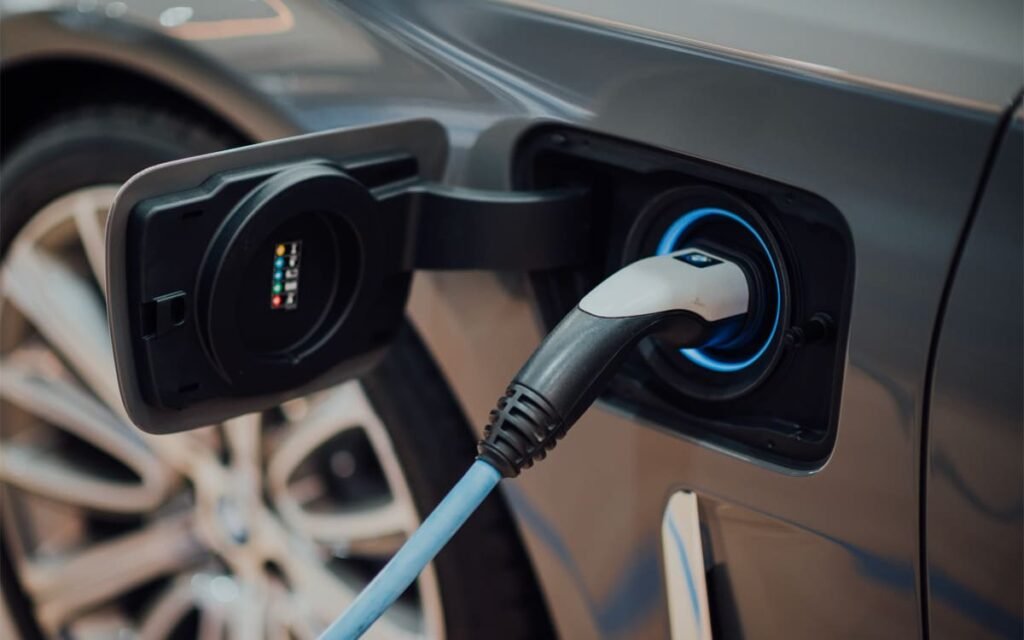Revolutionising Electric Vehicle Charging: The Technologies Making EVs More Accessible Than Ever

EV Technology keeps getting better and easier to use, and consumers are always eager for the next shiny thing. More people are considering electric cars for their ‘daily driver’ or family runabout than ever before because of lower prices and expanding charging networks, and home charging options.
Thanks to advances in electric vehicle tech and home charging solutions, the future looks bright for eco-friendly transportation. The EV industry is gaining a bigger share of the automotive market, and looking at all the advances in vehicle charging makes it easy to see why.
Charging Has Got Better And Easier
Electric cars function by plugging into a charge point and taking electricity from the grid. They store the electricity in rechargeable batteries that power an electric motor, which turns the wheels. Electric cars accelerate faster than vehicles with traditional fuel engines – so they feel lighter to drive.
There are now charging stations all over the UK to help EVs stay fully charged while they are out and about. Installing a home charger makes recharging much easier for EV owners. Click here for an estimate time for charging electric cars, thanks to LV ElectriX. They help people lease electric vehicles and get charging points installed at their homes and have lots of experience charging EVs.
Electric vehicles come in a few different flavors. Plug-in electric vehicles are purely electric and get all their power when plugged into a charging source. Since they don’t require traditional fuel, they don’t produce any emissions like regular cars. Plug-in hybrids, on the other hand, mostly run on electricity but also have a traditional fuel engine that can be used if they run out of charge.
Hybrid-electric vehicles mainly run on fuel, but they also have an electric battery that’s recharged through regenerative braking. They let you switch between using your fuel engine and using their EV mode at the touch of a button. These cars cannot be plugged into the grid and instead use petrol or diesel to generate energy.
The Times They Are A-Changin’
Last year, the UK Government unveiled its strategy to accelerate the adoption of electric vehicles and increase the number of EV charge points tenfold. By 2030, this strategy aims to improve the consumer experience at charge points, provide fast charging for longer journeys, and support those without off-street parking access.
The Government has pledged more than £1 billion to help expand the charging network. This will include 300,000 public charging stations that will be online by 2030. This is nearly five times the number of petrol and diesel pumps in the UK today.
Under the ‘Electric Vehicle Infrastructure Strategy‘, charging an EV will become more convenient and much cheaper than refueling a fossil-fuelled vehicle. This strategy also includes new legal requirements on charging operators to enable contactless payments, allow drivers to compare charging prices, and help users to find other nearby charging points using apps.
To support this initiative, £500 million will be invested to bring high-quality, competitively priced public charge points to communities across the country, including a £450 million Local Electric Vehicle Infrastructure (LEVI) fund. This fund will boost projects such as EV hubs and innovative on-street charging to ensure that all communities, regardless of whether they have driveways or not, can benefit from cleaner transportation.
A pilot scheme for the LEVI fund will allow local authorities to bid for a share of £10 million in funding to work with the industry and boost public charging opportunities. The UK Government has stated that the expansion of the charging network would support British people to adopt EVs and drive down the country’s dependence on external energy supplies.
EVs continue to benefit from lower fuel, running, and maintenance costs than their petrol and diesel equivalents despite recent trends in electricity prices. The strategy aims to encourage drivers across the nation to switch to EVs, and some analysts predict that purchase price parity with petrol and diesel cars will be reached within the 2020s.
This strategy forms part of wider UK Government plans to reduce reliance on imports of foreign oil, improve the security of our energy supply, and reduce the UK public’s vulnerability to volatile energy prices.
The Future Of Charging Is Bright
The EV charging industry is rapidly evolving to meet the needs of consumers. Fast charging allows EV owners to quickly charge their vehicles, making longer trips more feasible. This is particularly important as more people switch to EVs for their daily commutes and also for longer journeys. Another trend in the electric vehicle charging industry is the development of wireless charging technology. This tech allows EV owners to charge their vehicles without the need for cables or plugs.
The EV charging industry is also shifting towards more sustainable forms of charging and sources of energy. This includes solar-powered charging stations which harness the power of the sun to charge batteries. The industry is also exploring ways to make charging more accessible to all. This includes developing public charging infrastructure like charging stations in public places such as shopping centers and airports. Mobile charging stations are also being studied, and these can be deployed to areas where there is high demand for charging.
The UK Government and the EV charging industry are catching up with demand and rapidly rolling out new infrastructure across the UK. From fast charging and wireless charging technology to sustainable charging and public charging infrastructure, there are many exciting developments on the horizon. As more people switch to EVs, more charging options need to be added to UK roads and homes.
The Vehicles Are Evolving Too
Whether you’re looking for a practical family car, a luxury model or a sports car, there are now many electric options available. EVs offer a range of benefits, including low running costs and zero emissions. Most new models are now offering ranges of over 200 miles on a single charge, making them suitable for longer journeys. There are also a growing number of rapid chargers available that can provide up to 80% charge in just 30 minutes.
The market for EVs is constantly evolving, with new models being released regularly. Some upcoming models to look out for include the Volkswagen ID.4, the Audi Q4 e-tron and the Mercedes-Benz EQA. These models are expected to offer impressive ranges and advanced features, making them attractive options for those looking to switch to electric transport
Electric vehicles are becoming easier and more convenient to charge too, with the growing number of public charging stations available across the UK. Many manufacturers also offer home charging solutions as a part of the package, giving drivers an all-in-one solution.
The UK Government has set ambitious targets for the adoption of EVs, with a ban on the sale of new petrol and diesel cars set to come into effect in 2030. This is likely to drive further innovation in the EV market and make electric vehicles an even more attractive option for drivers.
With lower prices and expanding charging networks, more people are considering EVs for their daily commutes or family runabouts. Projects such as EV hubs and innovative on-street charging will help to ensure that all communities can benefit from cleaner transportation. The EV charging industry is shifting towards more sustainable forms of charging and sources of energy, including solar-powered charging stations and wireless charging technology, tempting even more consumers to make the switch. Will you be behind the wheel of an EV soon?
Research Snipers is currently covering all technology news including Google, Apple, Android, Xiaomi, Huawei, Samsung News, and More. Research Snipers has decade of experience in breaking technology news, covering latest trends in tech news, and recent developments.












